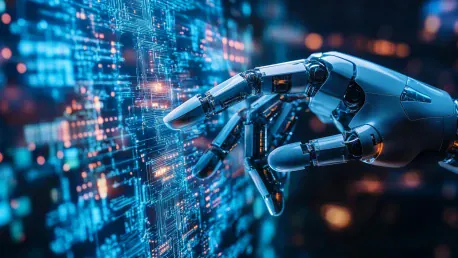While generative AI is often celebrated for its capabilities in generating art, music, and other forms of entertainment, its potential for revolutionizing various industries extends far beyond these traditional applications. At the recent Data Center Dynamics Connect Virginia event, industry leaders delved into how generative AI is having a profound impact on sectors like healthcare, employee management, programming, consulting, and customer service. They highlighted how these rapidly evolving technologies are not just fancy toys but powerful tools that streamline processes, enhance productivity, and offer valuable insights. By automating mundane and time-consuming tasks, generative AI is becoming an indispensable asset in the modern workforce.
Generative AI in Healthcare and Documentation
In the healthcare industry, generative AI is emerging as a game-changer, particularly in the management of documentation. Duncan Ng from Vultr emphasized the critical role AI plays in automating the paperwork involved in negotiations among doctors, hospitals, and insurance companies. This significant advancement not only reduces the burden on healthcare professionals but also accelerates administrative processes. By seamlessly handling a massive influx of data, generative AI enables healthcare providers to focus on patient care rather than getting bogged down in endless documentation tasks.
The integration of generative AI into healthcare settings goes beyond mere paperwork. AI systems can meticulously sift through patient records, identify patterns, and provide valuable insights for medical diagnoses and treatment plans. This capability is proving to be invaluable in managing chronic conditions and predicting potential health risks. By harnessing AI’s data processing power, healthcare professionals are better equipped to make informed decisions and deliver personalized treatment plans, ultimately improving patient outcomes. The focus, therefore, is not just on efficiency but also on elevating the standard of care provided.
Streamlining Employee Transitions and Programming
The tedious process of employee transitions is another area where generative AI shows immense promise. According to Greg Ratcliff from Vertiv, generative AI can facilitate smoother transitions by efficiently sifting through the digital information left by former employees. This ensures that incoming staff have quick access to necessary documents, correspondence, and data, thereby minimizing the disruptions caused by staff changes. Such AI-driven processes make onboarding less daunting and enable new employees to hit the ground running, which can be critically important for maintaining business continuity.
In the realm of programming, generative AI is reshaping how code is written, reviewed, and deployed. Developers are now leveraging AI to accelerate code releases and enhance efficiency. Rather than viewing AI as a threat, many programmers see it as a collaborative tool. Ratcliff reassures that AI will not replace programmers but will instead augment their capabilities. By suggesting code based on open-source data and historical coding practices, AI helps improve workflow and reduce the likelihood of errors. This symbiotic relationship between AI and human programmers facilitates the rapid development of high-quality software solutions.
Generative AI in Consulting and Customer Service
Michael Maniscalco from Applied Digital shed light on how generative AI is transforming the consulting industry. Traditionally, consulting firms employ human consultants or interns to compile and analyze vast amounts of data from earnings reports and industry analyses. However, generative AI systems can now perform these tasks in a fraction of the time, providing businesses with actionable insights much faster. This efficiency allows consultants to focus on more strategic aspects of their roles, such as interpreting data and advising clients, thereby enhancing the overall value they bring to their assignments.
Customer service is another domain that is benefiting from the advancements in generative AI. Dylan Boday of IBM noted how AI-powered chatbots have revolutionized the way companies interact with customers. These intelligent bots handle simple queries autonomously, freeing up human agents to tackle more complex issues. This dual approach not only improves response times but also enhances customer satisfaction. IBM’s experience with generative AI in customer service has led to a 30% improvement in resolving customer issues, underscoring the potential of AI to fundamentally improve business operations.
Next Steps in Generative AI Applications
While generative AI is often praised for its ability to create art, music, and various forms of entertainment, its potential for transforming numerous industries goes far beyond these well-known applications. At the recent Data Center Dynamics Connect Virginia event, industry leaders discussed how generative AI is significantly impacting fields such as healthcare, employee management, programming, consulting, and customer service. They emphasized that these rapidly advancing technologies are not simply sophisticated novelties but essential tools that streamline processes, boost productivity, and provide valuable insights. For example, in healthcare, generative AI can analyze medical data to assist in diagnosis and treatment plans, saving time for healthcare professionals. In programming, AI can write and debug code, allowing developers to focus on more complex tasks. Moreover, in customer service, AI-powered chatbots can handle routine inquiries, freeing up human agents for more intricate issues. By automating mundane and time-consuming tasks, generative AI is becoming a crucial asset in the modern workforce, driving efficiency and innovation across various sectors.









